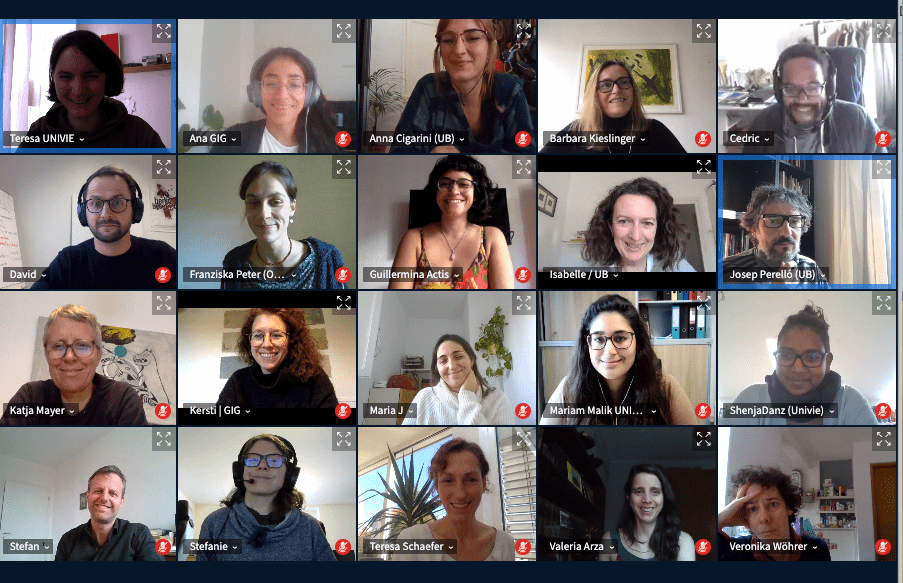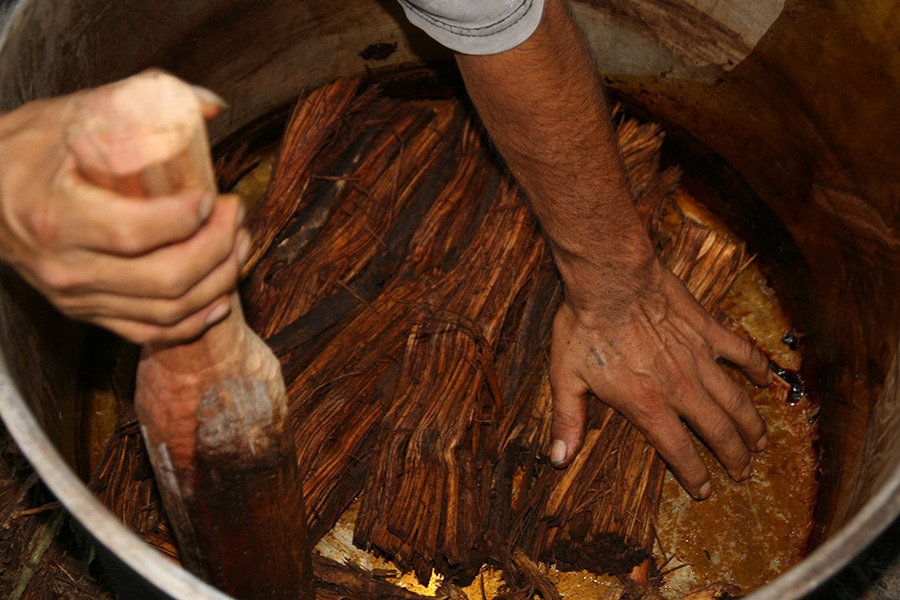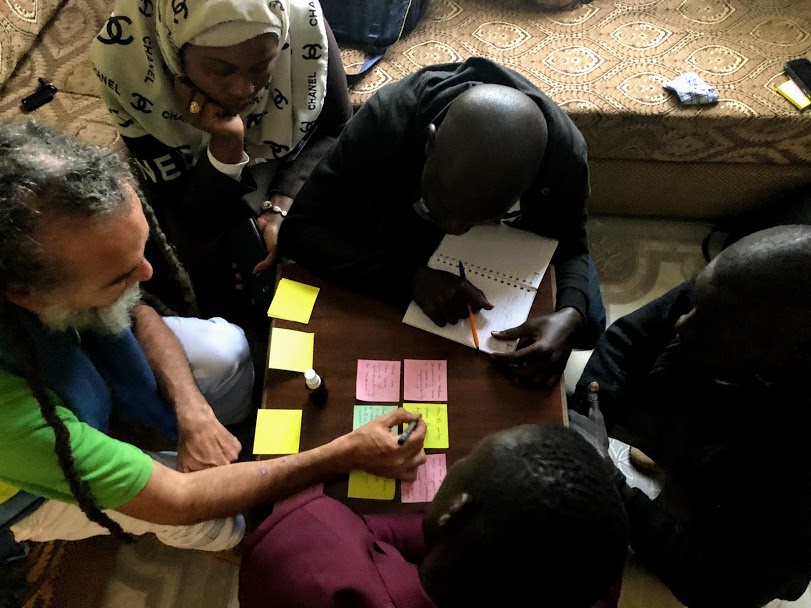During the last 36 months, the Global Innovation Gathering helped CoAct project deliver Citizen Social Science concepts and practices to more than 1,6 million people, using a wide range of communication strategies and tools, combined with intense resilience and creativity during the COVID-19 pandemic.
CoAct (Co-designing Citizen Social Science for Collective Action) proposes a radically new approach to facing global social issues by engaging vulnerable citizens as co-researchers. The strategy represents a new account of Citizen Social Science, understood here as participatory research co-designed and directly driven by citizen groups sharing a social concern. CoAct’s research approach, where citizen groups and their problems are at the core of the research questions, requires translating those attributes for its communicative and dissemination activities. Furthermore, CoAct’s shared values – Inclusiveness, Horizontality, Equity, Trust and Respect, Open Science, Co-ownership, Empowerment, and Reflexivity – underlined the direction and structure of CoAct’s communication, dissemination and exploitation Work Package, led by the Global Innovation Gathering inside a consortium partnership.
The first year of CoAct (2020) focused on developing the project’s communication and dissemination strategy alongside its corporate identity and design elements. GIG created a guideline manual with basic templates for presentations, reports, and social media posts on Twitter, Instagram and Facebook, enabling all partners to design their communication and dissemination materials. On the overarching project level, communication and dissemination activities focused on raising awareness about the project and its methodology and actively engaging potentially relevant external actors to grow an international CSS community beyond the R&I Actions performed by CoAct. On the R&I action level, activities ranged from local outreach and engagement exercises to assembling Knowledge Coalitions, engaging relevant stakeholders, and creating awareness about the R&I Actions and respective developments.

The second year focused on additional engagement alongside the publication and spreading of first outcomes, lessons learned, and the concentration of different actors in conversations about the various project’s thematic areas. Those activities’ outreach and engagement multiplied through CoAct’s and consortium partners’ websites and social media channels. These actions aimed to disclose the shaping of the Citizen Social Science approach from diverse perspectives and geographies. These activities partially belonged to the project’s dedicated community-building workstream, seeking to co-create discourse and formats deriving from the needs of interested civil society actors. As a starting point, an open community call set an agenda and created a CSS messenger chat group. These co-created and iterative processes could organise frequent thematically focused gatherings. Lessons learned from the external feedback alongside co-evaluation informed the adaptation of methodological steps. These learning processes are documented in written and audio-visual materials and disseminated via various communication channels.
The third year continued to communicate and discuss CoAct activities and learnings via media and events. Exposure was through publicity via the website and interior and institutional social media channels, whilst blog posts summarised and disseminated internally hosted webinars, hangouts and other activities. Findings from the R&I Actions and the co-evaluation processes are in policy briefs, whitepapers, academic articles, and reports. Experienced methods are available in a toolkit accessible on the project website, including additional data and details. A final event week brought together community members, partners, co-researchers, and the general public to reflect upon the outcomes in two dedicated panel discussions. An online video premiere showcasing CoAct’s work of the last three years celebrated results furthermore.
Shaping Global Perspectives on Citizen Social Science
One of the most outstanding outcomes from the research was the Global Perspectives Publication is the critical reflection of a group of global makers and innovators on the Citizen Social Science concept. These actors, who are all deeply rooted in projects fostering local engagement in change processes, raised some critical concerns, ranging from western framings of science to the often limited enactment of actual participation, as in local ownership. The publication is online on CoAct website.
The five topics of the publication are:
- Locally driven protocols and local traditions
- The Ownership of Science
- Decolonising our educational/institutional influences
- Overcoming false representation in participatory processes
- Ethical standard setting
With every topic, a driving question showcased how those issues are addressed in people’s local community work or through think pieces that provide a more overarching reflection. The contributions received from numerous actors, mainly from Latin American, African and South East Asian contexts, guide rethinking institutional silos and provide concrete examples and lessons learned from how to address those issues in practice. In this way, Global Perspectives offers various contributions to sustainability:
- It broads the concept of Citizen Social Science by demonstrating how local engagement in scientific processes happens around the world
- It demonstrates how CSS is narrowing itself in an academic conceptualisation of science.
- It provides examples from different socio-political contexts, thus diversifying and helping non-western actors to identify with the concept.
Shaping the CSS approach in a participatory manner requires engaging a broad and diverse community in the entire debate. In this way, CoAct community gradually strengthened itself through the tools used for community building, and community participation embraced CSS to flourish inside and outside academia. Furthermore, it provided an inclusive approach to the concept, openly and equally acknowledging different communities of experts and their crucial roles.

Local contexts and interests drove community participation to emancipate and disseminate the CSS approach beyond CoAct, crafting a community that will be owned and carried on beyond CoAct’s project timebound. Moreover, creating a CSS community that collectively holds and shapes the CSS approach is intrinsically connected to the values CoAct stands for.
Whitepapers and Policy Briefs
Five of CoAct’s project partners produced four policy briefs and two whitepapers. This necessary content provides policymakers, civil society organisations and research-performing institutions with recommendations on how to use Citizen Social Science to support and shape social change. The policy briefs and whitepapers are online on CoAct’s web platform:
Building a community of practice
The objectives of CoAct’s communication and dissemination activities were:
- To engage vulnerable citizens and local civil society groups in R&I initiatives and to place them at the centre of the R&I cycle.
- To increase scientific literacy, skills, competence, and public awareness regarding science.
- To disseminate CoAct and build a sustainable citizen social science community of practice.
The consortium worked towards achieving these objectives, facing and overcoming the unpredictable pandemic with creativity in its actions. Communication and dissemination campaigns met expected KPIs, even outnumbering them. The number of webinars, community hangouts and blog series, gender equality open calls, the available citizen social science toolkit, informative videos, scientific papers published, and many other activities all emphasise those efforts. In addition, they could engage civil society in R&I initiatives while increasing scientific literacy, skills, competence, and public awareness regarding science and citizen science. CoAct’s dissemination and communications strategies gradually raise knowledge about citizen social science in its target groups, just as planned.
But, the most crucial detail is that, during the project, CoAct emphasised activities to build and support sustainable Citizen Social Science communities of practice that are inclusive, diverse, and transdisciplinary. A set of participatory activities gradually built this community:
- Open calls for videos: an initial step, providing a platform for CSS initiatives to present their work and for the different initiatives to learn about and from each other. Answering questions like “What does CSS mean for you?”, “What would you need to make a CSS approach meaningful to civil society?” and “How would a CSS community of practitioners from civil society and academia ideally look like?” the contributions are on the CoAct website
- Citizen Social Science Meetup: an active meeting of global citizen scientists around the topic. It was a basis for gathering proposals and suggestions to establish a community. One can find the complete documentation and the meetup recording here:
- The Citizen Social Science Community chat group is an active message group hosted on Signal, a privacy-oriented and open-source communication tool. The group is an environment for a low barrier, instant exchange of thoughts, events, and materials, with 61 members from around the globe.
- Community Hangouts: A series of nine online community meetings that contributed to shaping a global bottom-up perspective on how science should/is be thought of and addressed and how inclusive, bottom-up practices are enabled in the most diverse contexts worldwide. With participants from all continents, it highlighted best practices and lessons learned. Community Hangouts were a sharing knowledge space to support other actors shaping their respective communities while learning from their experiences.
Together with events participation and the already active academic community around its scientific papers, CoAct believes Citizen Social Science studies can grow from and take root from this Horizon 2020 project on the grounds of Science and Open Science. Congratulations to all the CoAct team at GIG!

The CoAct project has received funding from the European Union´s Horizon 2020 research and innovation programme under grant agreement number 873048


